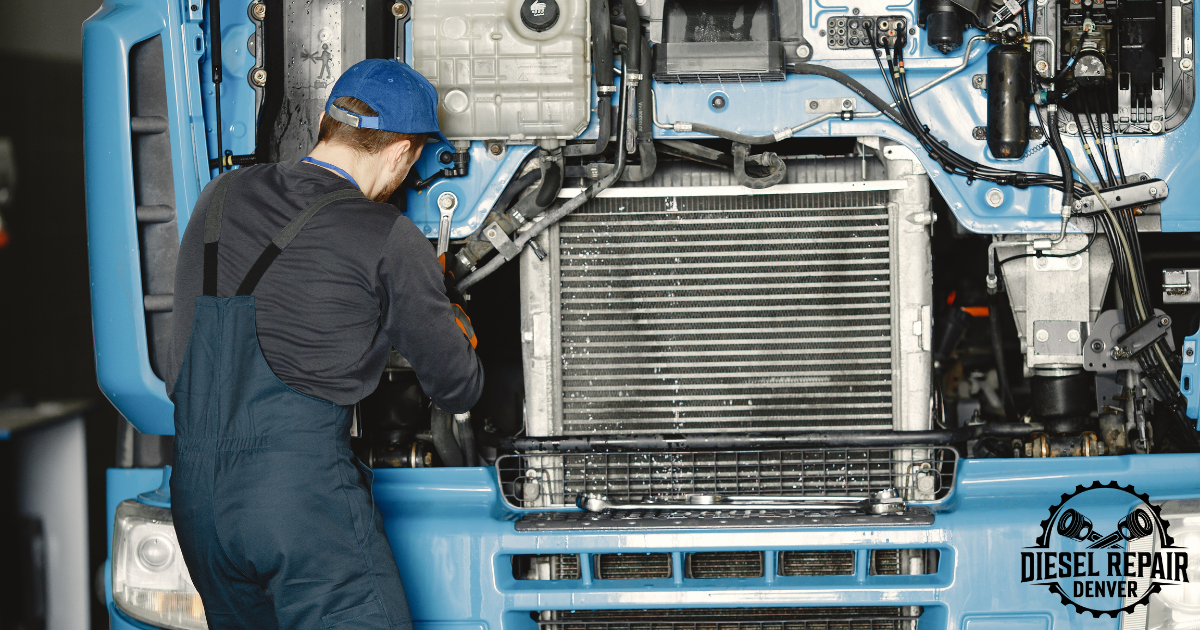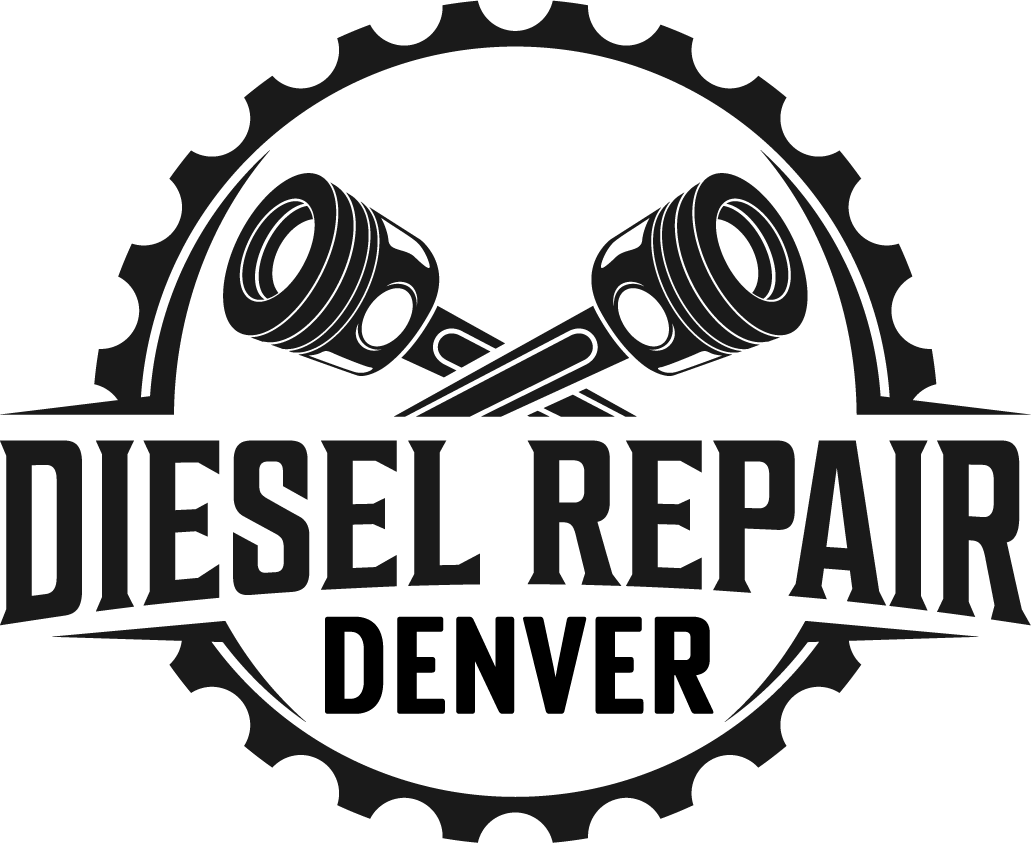10 Common Semi-Truck Breakdowns in Colorado & How to Prevent Them

10 Common Semi-Truck Breakdowns in Colorado & How to Prevent Them
Keeping your rig rolling through the rugged roads and unpredictable weather of Colorado isn't just a job—it's survival. For truckers and fleet managers operating in and around Denver, understanding the most common semi-truck breakdowns is crucial. With steep mountain passes, sudden snowstorms, and high altitudes, Colorado presents unique challenges for diesel engines and heavy-duty trucks.
In this guide, we'll dive into the most frequent breakdown issues and offer expert tips on how to prevent them. Plus, if you're looking for trusted semi-truck repair in Denver, we’ll show you where to turn.
Understanding The Unique Driving Conditions in Denver Colorado
Colorado's diverse terrain and weather create an environment that puts extra stress on diesel trucks. The elevation in Denver and surrounding areas means thinner air, which reduces engine efficiency and makes cooling systems work harder. Mountainous roads require frequent and intense braking, especially on steep descents, which can lead to overheating or brake system failure. Meanwhile, the state's weather is notorious for changing quickly—winter storms and hot summers can occur in the same week—causing rapid wear and unexpected failures in electrical and fuel systems.
Engine Overheating in Denver
One of the most common problems truckers face in Colorado is engine overheating. The reduced air density at high altitudes affects the engine’s ability to stay cool, particularly when hauling heavy loads uphill. Overheating is often caused by low coolant levels, failing thermostats, or radiator issues such as blockages or leaks. Preventing this issue requires regular checks of coolant levels and system components. It's wise to inspect hoses and look for any signs of leaks before setting off on a mountain route. Scheduling periodic radiator flushes can also improve overall system efficiency and prevent surprises on the road.
Diesel Repair Denver offers many overheating repair services including diagnostics for radiators and coolant systems, replacements, flushes, etc.
Brake System Failures in Denver Colorado
Brake failure in Denver is especially dangerous in mountainous regions, and Colorado's terrain makes it a top concern. Extended downhill driving increases friction and heats up the brake system. This can cause brake fluid to boil or pads to wear faster than expected. Common signs of trouble include spongy pedal response, grinding sounds, or decreased stopping power. To keep brakes reliable, it’s essential to use engine braking whenever possible, perform monthly inspections of pads and rotors, and maintain proper brake fluid levels. Ignoring any warning signs on your dash can lead to unsafe driving conditions and expensive repairs.
Electrical System Failures
Colorado’s cold winters take a toll on electrical systems, especially batteries and alternators. Low temperatures can weaken battery charge, while icy conditions and road salt may corrode terminals and wiring. Symptoms like dim headlights, a weak battery, or erratic dashboard readings often indicate electrical trouble. It’s smart to test your battery before each winter season and clean the battery terminals regularly to prevent buildup. Alternators should also be tested for consistent voltage output and replaced at the first sign of failure to ensure your truck stays powered in remote areas.
Fuel System Issues
Cold weather is not kind to diesel fuel. In Colorado, sub-zero temperatures can cause fuel to gel, while the region’s fluctuating humidity can introduce moisture into the system, leading to water contamination. These problems can clog fuel filters or damage injectors. To avoid breakdowns, it’s recommended to switch to winter-grade diesel or use anti-gel additives when temperatures drop. Regularly changing your fuel filters and draining water separators before long trips can also help maintain fuel flow and protect your engine’s performance. Diesel Repair Denver can diagnose and service your semi truck for any fuel related issue you encounter over the road including injector replacements and valve adjustments.
Transmission Issues in Denver, CO
Mountain driving demands a lot from your truck’s transmission. Climbing steep grades and descending while loaded puts added pressure on gears and transmission fluid. Drivers may notice hard shifts, slipping between gears, or even burning smells. These symptoms typically point to worn transmission components or low fluid levels. Staying ahead of these issues requires checking transmission fluids regularly and using the correct type for high-altitude performance. Overloading trailers, especially in mountainous terrain, should be avoided whenever possible, as it can rapidly accelerate wear and lead to transmission failure.
Tire Blowout and Wear
The long hauls, sharp curves, and rapid elevation changes in Colorado put constant stress on your tires. Blowouts are often the result of prolonged high speeds, hot road surfaces, or underinflated tires. Mountain driving also contributes to uneven wear patterns due to constant turning and weight shifts. To prevent tire issues, it’s important to monitor inflation closely, rotate tires routinely, and check for signs of irregular wear. Addressing alignment problems early can also extend tire life and improve fuel efficiency.
Suspension and Alignment Damage
Rural Colorado roads, especially in mountain and desert areas, can be rough and unpredictable. These conditions wreak havoc on a truck’s suspension, damaging shocks, springs, and tie rods. Misalignment often shows up as a pulling sensation in the steering wheel or uneven tire wear. Regular inspections of the undercarriage can help spot problems before they become serious. Additionally, staying within weight limits and evenly distributing loads helps protect suspension components from excessive strain.
Cooling System Failures
The cooling system is vital for engine health, and any failure can lead to breakdowns, especially in Colorado’s extreme weather. Problems like radiator leaks, broken belts, or failing thermostats reduce the system’s ability to regulate temperature. Warning signs include white smoke, spikes in engine temperature, or visible coolant leaks. To prevent failure, flush the cooling system seasonally, use antifreeze rated for cold climates, and inspect all cooling components for wear and tear. Replacing worn parts before winter sets in can save you from costly downtime.
Exhaust/Aftertreatment System Damage
In Colorado, moisture, ice, and road salt contribute heavily to exhaust system rust and corrosion. Damage to the exhaust system can lead to poor fuel economy, reduced engine performance, and increased emissions. Drivers should pay attention to unusual exhaust noises or a drop in fuel efficiency, as these often indicate exhaust leaks or clogs. Regular inspections, especially after driving in snow or rain, can help catch rust or cracks early. Addressing exhaust issues promptly not only improves performance but also ensures compliance with emissions standards. Here in Denver we offer DPF cleaning services, DOC cleaning and flushes, sensor diagnostics and repairs.
Battery and Starter Failures
There’s nothing more frustrating than being stranded because your truck won’t start, and this is all too common during Colorado winters. Cold temperatures reduce battery capacity and strain the starter. If you hear a clicking sound or experience sluggish starts, your battery or starter may be failing. It's important to test battery strength regularly, especially before and during winter, and to replace batteries every three to five years. Ensuring your alternator is functioning correctly is also key to keeping your truck’s electrical system running smoothly. Come get your truck batteries tested to see if you need to replace them soon.
Air System Leaks Denver CO
For trucks with air brakes, Colorado's cold climate poses serious risks. When air lines freeze or crack, it can lead to brake failure, a hazard no driver wants to face. Signs of leaks include hissing sounds, reduced braking effectiveness, or slow air pressure buildup. Preventative measures include inspecting air lines for cracks, draining air tanks daily in freezing temperatures, and replacing older lines before they become brittle. Regular inspections are crucial, especially when temperatures drop below freezing.
Preventative Maintenance for Truckers in Denver, CO
Given the environmental demands of Colorado driving, proactive maintenance is not optional—it’s a necessity. Monthly routines should include fluid checks, brake inspections, battery tests, and tire evaluations. Seasonal maintenance is also important, such as switching to cold-weather fluids and checking for frost damage. Partnering with a local repair shop that understands Colorado’s terrain and climate can be a game-changer. They’ll know what to look for and how to prepare your truck for everything from icy highways to mountain switchbacks.
Why Choose Our Denver Diesel Repair Shop for Semi-Truck Repairs in Denver?
When breakdowns happen, you need fast, expert help from professionals who understand the region’s challenges. Our Denver-based diesel repair shop offers full engine diagnostics, emergency roadside assistance, DOT inspections, and specialized brake, suspension, and exhaust repairs. We pride ourselves on being locally trusted and regionally informed. Our team is committed to helping truckers minimize downtime and maximize safety—whether you're passing through or running freight across Colorado every week.
Frequently Asked Questions (FAQs)
One of the most common questions we hear is about which repairs semi-truck drivers face most often in Colorado. The answer typically includes brake system failures, engine overheating, electrical malfunctions, and suspension issues, all due to the harsh terrain and elevation. Another frequent concern is how altitude impacts diesel engines. Thinner air reduces oxygen intake, leading to less efficient combustion and a higher risk of overheating.
Drivers also ask how often brakes should be checked, especially with regular travel in and around Denver. Monthly inspections are recommended, with additional checks before long hauls through mountain routes. Many truckers are concerned about cold weather's effect on their trucks. Batteries tend to fail more quickly, diesel fuel can gel, and frozen air lines can create major issues. Spotting air system leaks early is important. Hissing sounds or slow air pressure build-up are key signs to watch for. When choosing a repair shop, look for local expertise, great customer reviews, and a team that offers 24/7 emergency services in Denver—all of which our Denver shop provides.
Conclusion:
Driving a semi-truck in Colorado is no easy task. The combination of high altitudes, steep grades, unpredictable weather, and rugged terrain means that breakdowns are a real risk. But with knowledge, preparation, and a trusted maintenance partner, many of these issues can be prevented. By staying alert to the signs of trouble and maintaining a routine inspection schedule, you’ll stay on the road longer and avoid the cost and stress of emergency repairs. If you're looking for reliable and experienced semi-truck repair in Denver, we're here to help—get in touch or stop by our shop today.
